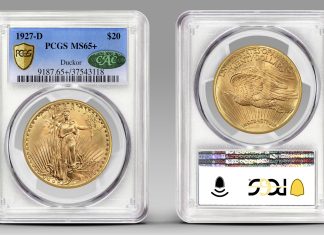The final trading session of this second week of intense world events opened on a mixed note in various assets once again.
 Global investors continue to digest the fast-moving news stories and are still attempting to keep one step ahead of volatility and counterintuitive market moves that are clearly very much news-driven as opposed to heeding internal fundamentals.
Global investors continue to digest the fast-moving news stories and are still attempting to keep one step ahead of volatility and counterintuitive market moves that are clearly very much news-driven as opposed to heeding internal fundamentals.
Thus, crude oil prices hovered near the mid- $105 area for yet another morning, gold traded some $3 higher at the open (following a somewhat unsettling and swift pullback from a new record very near $1,450 on Thursday) and silver edged higher as well (last seen near $37.38 per ounce). Platinum and palladium slipped a tad lower in early trading as the players in that complex weigh the impact on the events in Japan, and to some extent Libya, on the auto industry.
Reports that automotive-related layoffs could take place in Indiana, and that European carmakers might have to idle certain plants as parts shortages are turning serious are keeping a lid on the platinum-group metals even as their yellow and white relatives are scoring record-book achievements. Quotes of $1,748.00 and $749.00 respectively were on offer for the two noble metals in the first hour of Friday trading.
Overnight reports that China’s central bank might be bullish on commodities (and gold in particular) stoked the bulls to some extent, but they appeared to ignore the context within which the 125-page PBOC report made any such statements and how the institution might actually view the future of some of these markets.
For the sake of…balance, we note that while the PBOC did forecast that (in its opinion):
"Developed countries will continue with their loose policies and global liquidity will remain ample, which will keep prices of commodities, especially crude oil and grains at high levels," and that "concerns about inflation would trigger demand for gold as a store of value," it also raised caution flags about the fact that the precious metal’s bull run may be near its end: "We need to note that gold prices have reached historical highs, and its downward risks should not be overlooked," the central bank said.
With the recent readings of bullish consensus being what they are in some of these metals, there appears to be quite a bit of "overlooking" going on by latecomers to the gambling table.
This morning’s world news roundup contained much of the same dramatic story material that has kept markets on edge and investors on alert for the past two weeks now. Japan and Libya remained at the front and center of media attention while markets added resurfacing European debt concerns and broader economic snapshot data to the list of items on their watch-list as the week began to wind down. Safe-haven bids in precious metals, oil and certain currencies continued to be visible as this most upheaval-laden March also draws towards a close.
The label being applied to the Japanese nuclear crisis — after a full week of conflicting and speculative reports — unfortunately, still spells "g r a v e" as the latest information basically all but confirms a breach of the No. 3 Fukushima reactor core. Radiation from that containment vessel has now leaked to quite some distance from the plant and continues to alarm the millions living in Tokyo some 240 kilometers away. The death toll from the March 11 quake has surpassed 10,000 while another 17,000 persons remain unaccounted for.
Overnight, NATO agreed to take command of the UN-sanctioned allied military operation to oust Col. "Mad Dog" Gaddafi from power while France declared Libyan airspace as being "under control." Amid such conditions, relatively calm conditions were observed in the street of Tripoli preceding customary Friday prayers. However, new reports have been alluding to certain "feelers" being extended by Gaddafi or his inner circle as to the possibility of "safe passage."
Meanwhile, in Yemen, President Saleh told reporters that –following mass protests and worse — he is prepared to leave power, but…can’t. Finally, in Syria, government forces broke up yet another demonstration. No reports of any violence have been coming forth as yet.
Over in Europe, albeit the risk of the credit rot spreading is seen as quite low, especially as regards neighboring Spain, debt yields of the Portuguese variety hit new highs this morning. The euro, however, gained a bit of ground in early trading action as it apparently ignored a couple of debt downgrades and a suggestions by an EU official that a bailout of Portugal is basically unavoidable.
The Prime Minister of Luxembourg stated that "If Portugal asks for help, then it would be assumed that this would happened shortly, and in that case the rescue shield would be enough." The euro also took reports that German business confidence fell for the first time in nine months, in stride. The EU summit that is expected to yield a draft document to deal with the issues that have plagued the union since about a year ago concludes in Brussels today. Everyone is tuned in.
As well, many an eye is being kept on US economic developments. Fed policymaker Kocherlakota expressed her sentiment that any new and/or extended QE program would only see the light of day if "materially" different (than now) data required such steps. Well, the Commerce Department in DC did not have any such ‘material’ to offer in this morning’s US GDP report. Conclusion: stagflation, this is data is not reflecting, apparently. Odds of QE2.5 or 3 being on offer are shrinking faster than had been anticipated.
America’s domestic product grew at an upwardly revised 3.1% annualized rated during the final quarter of 2010. A key component of inflation measurement (that of personal consumption expenditure) was revised lower this morning as well. Moreover, Atlanta Fed President Lockhart assuaged inflation-oriented angst to an audience in Florida this morning by saying that the recent spike in the price of food and energy "will not persist."
One thing that will persist — for the time being, anyway — is the uncertainty and volatility that the types of news flows such as the ones that the Ides of March (somehow, eerily, four days early this year, and lasting for nearly two weeks now) of 2011 have given rise to, all around the world and all around the markets.
Until next week,
Jon Nadler
Senior Analyst
Kitco Metals Inc.
North America
www.kitco.com and www.kitco.cn
Blog: http://www.kitco.com/ind/index.html#nadler










